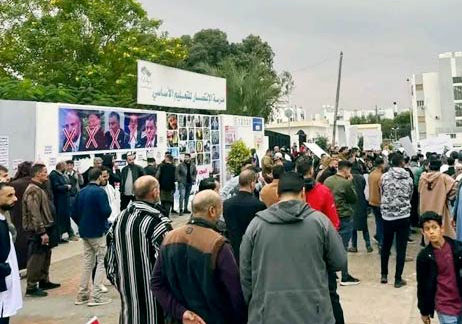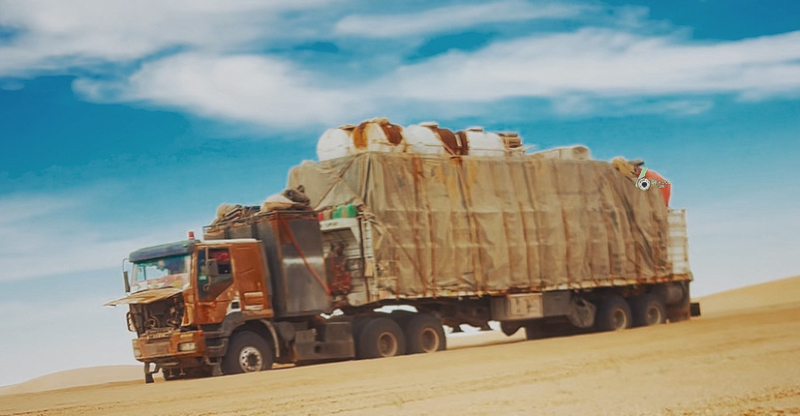Libyans have little to celebrate on Liberation Day
Published on 2024 October 28, Monday Back to articles
GNU Prime Minister Abdelhamid Dbeibah (centre) at 2024 Liberation Day celebrations
Liberation Day on 23 October commemorates the fall of Muammar Qhadafi’s regime in 2011 and once symbolised a hopeful turn toward democracy and renewal. In October 2011 the head of the National Transitional Council (NTC), Mustafa Abdel Jalil, announced the country’s liberation in Benghazi. For many Libyans, however, this annual celebration has dimmed over time and has been overshadowed by an endless struggle for stability, peace, and genuine democratic governance.
Libya’s initial February 2011 uprising carried high expectations, igniting hopes for a prosperous democracy in a hydrocarbon rich country with a relatively homogeneous and cohesive social and religious fabric. The early signs appeared promising. In 2012, the NTC, which had championed the anti-Qadhafi uprising, facilitated elections for Libya’s first parliament, the General National Congress (GNC). The latter’s inability to reflect Libyans’ aspirations soon led to widespread frustration, and the transition faltered as political discord and security challenges intensified. Hopes of an orderly democratic transition gave way to a series of cycles of conflict, crisis, and foreign intervention which fragmented the country along political and regional lines. Similar frustrating consequences followed the 2014 elections which was supposed to elect the House of Representatives (House) for a single five-year term.
The December 2015 signing of the UN-brokered Libyan Political Agreement in the Moroccan town of Skhirat was another milestone to stabilise Libya through the establishment of the Government of National Accord (GNA) and institutional framework for peace. However, internal rifts soon diminished the LPA’s effectiveness. The subsequent 2021 formation of the Government of National Unity (GNU) — in which the expected candidates, including the power House of Representatives’ speaker Aguila Saleh, lost out — was marred by parliamentary opposition and rejection from rival factions, which further complicated the political landscape and consolidated regional divides. The GNU’s current influence remains largely confined to Tripoli, with the competing parallel eastern-based Government of National Stability (GNS) — backed and commanded by the Khalifa Haftar’s Libyan Arab Armed Forces (LAAF) — controlling the east and the south and operating with de facto autonomy.
Other than the symbolism of Liberation Day, the endless political logjam and conflict make a mockery of the very notion of Libya’s ‘liberation.’ The question endures: what does this hard-won liberation mean for Libyans? For many, the day serves as a sombre reminder of unfulfilled promises and underscores the need for a political system that embodies the peaceful transfer of power, which is still an elusive prospect amid factional rivalries and foreign interference. While the Libyan people continue to seek a unified and democratic state, the reality is that the country remains mired in cycles of struggle, as entrenched incumbent leaders and foreign countries manoeuvre for influence.
Libya’s journey since 2011 reflects a vision of liberation that remains largely unrealised, with many questioning what tangible change has emerged. Yet, Liberation Day endures as a reminder of the people’s initial yearning for freedom—a vision that can still serve as a point of unity and resolve for Libyans aspiring for peace, democratic governance, and true national cohesion.
This excerpt is taken from our Libya Politics & Security weekly intelligence report. Click here to receive a free sample copy. Contact info@menas.co.uk for subscription details.


